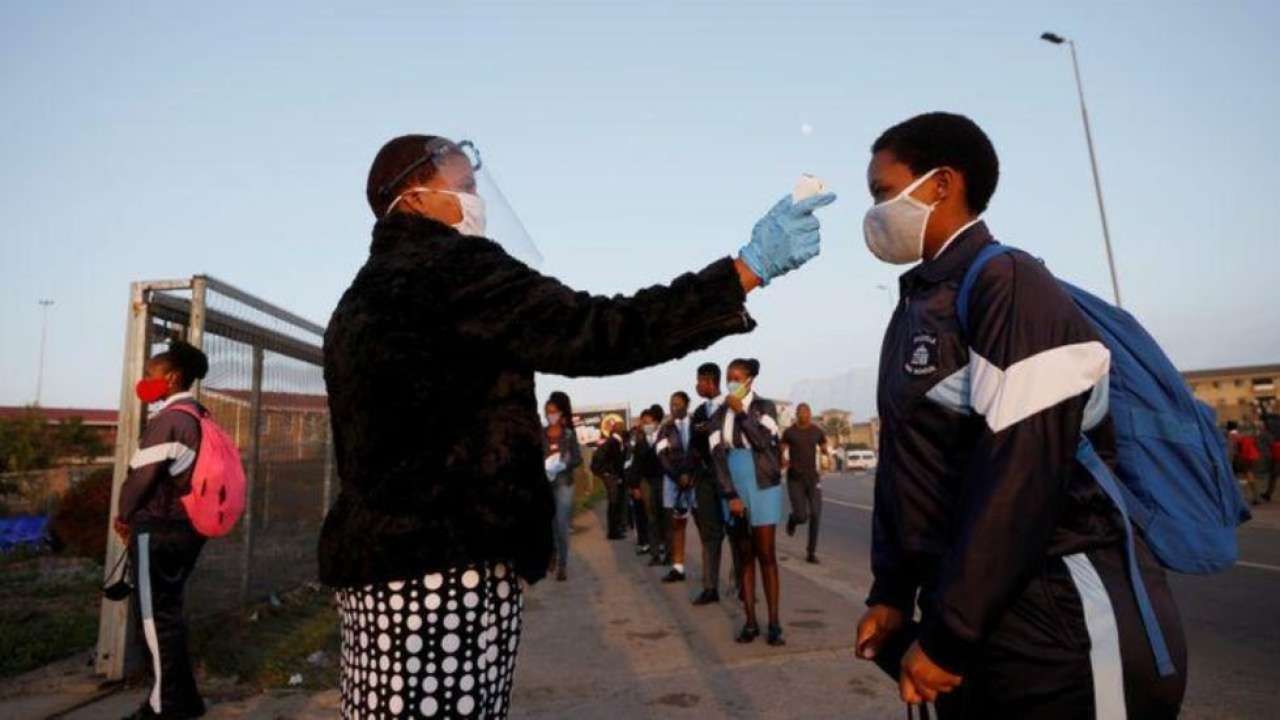
The new COVID-19 variant has more mutations than ever before. Nations around the world are trying to control it. The UK has banned flights from six African nations. Additionally, the WHO is also conducting an emergency meeting.
NewCOVID-19 variant causing chaos

The world is struggling with the deadly delta variant of coronavirus. Several countries across the world are struggling to reopen after two years of lockdown and partial opening. The World Health Organisation (WHO) is holding a meeting on Friday. The emergency meeting will help decide if the B.1.1.529 will be a variant of concern (VOC). The WHO’s meeting is focussing on how th variant has an unusually high number of mutations on its spike proteins. In some of the accounts, there are up to 10 mutations. Comparatively, the beta and delta variants had three and two mutations respectively.
“We don’t know very much about this yet. What we do know is that this variant has a large number of mutations. And the concern is that when you have so many mutations, it can have an impact on how the virus behaves,” stated Dr. Maria Van Kerkhove. Dr. Kerkhove is the WHO’s technical lead on the virus behind the pandemic. Additionally, the meeting will discuss how it will impact ongoing treatments and vaccines.
The UK bans flights from six African nations
Moreover, on Thursday, the UK banned flights to and from six African nations. The variant was first detected in South Arica. The United Kingdom suspended flights from South Africa, in addition to Lesotho, Eswatini, Botswana, Namibia and, Zimbabwe. Sajid Javid, the health secretary of the UK announced the WHO briefing on the new covid variant. “More data is needed but we’re taking precautions now. From noon tomorrow six African countries will be added to the red list, flights will be temporarily banned, and UK travelers must quarantine,” tweeted Javid.
If this highly mutated variant spreads, it can be highly devastating for Africa. After all, the region is much more behind vaccination than other nations. Currently, about 43 percent of the adult population in South Africa is fully vaccinated. 22 people from South Africa have the mutated virus. Additionally, people from Botswana and Hong Kong tested positive for the pathogen. The high number of mutations in the spike proteins is also a ‘big jump in the evolution of the pathogen as per researchers.





